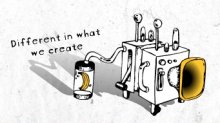Did Symbian go open source too late?


(I found this on the Symbian home page. Any idea what it is? Or what it means? Anyone? Bueller? )
Symbian dominated the mobile world for years. Its real time operating systems powered nearly every phone out there. The Symbian Foundation includes five of the finest old-line mobile makers -- Nokia, Samsung, Sharp, Fujitsu, Sony Ericsson -- along with China's Huawei.
But the world has moved on. Symbian is no longer the leader. Apple is. Symbian is no longer even the momentum play. Google is. Despite all the talk of tablets and connected devices, there is still no there there.
Fact is, Symbian needed a lot more than Nokia was willing or able to give it in order to be competitive. The group says its goal is for Nokia to control just half the code base next year. The rest of it better be something special.
While backward compatibility matters with desktops and servers, it doesn't seem to matter much in mobile devices, which are often priced to be thrown away. My son accidentally washed his Symbian phone in the laundry this week. I didn't panic. We just got him another one.
Symbian is the product of a carrier-focused world where voice minutes mattered and data came only from walled gardens. Carriers like Verizon Wireless openly bragged about their control over customers, how every program running on their gear was pre-approved, and how they were getting a cut on every bit. The networks were strong, the devices weak.
It's not that way anymore. We are evolving toward a world where the devices are strong but the networks weak. A lot of iPhone data traffic runs over WiFi. It's the Internet, stupid.
The result is there is a lot more demand for bits, but carriers don't get as much per-bit as they did before. The result is that consumers look at their devices as being more akin to computers than to phones.
This is not the world Symbian made. This is the world it is trying to enter. This is the world Symbian's partners, on the whole, ignored as it was coming on. Why should they be trusted to lead now?
You know what would be great fun, though? If somehow, Symbian made me eat my words three years from now. That would make my day. So go ahead and try.